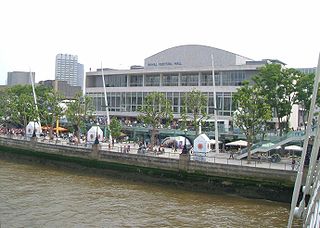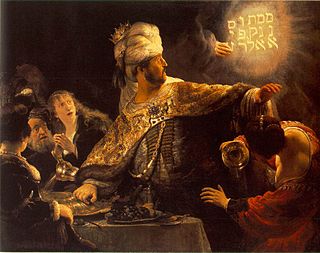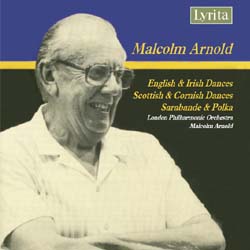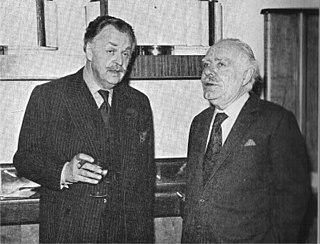
Sir William Turner Walton, OM was an English composer. During a sixty-year career, he wrote music in several classical genres and styles, from film scores to opera. His best-known works include Façade, the cantata Belshazzar's Feast, the Viola Concerto, the First Symphony, and the British coronation anthems Crown Imperial and Orb and Sceptre.

Sir Adrian Cedric Boult, CH was an English conductor. Brought up in a prosperous mercantile family, he followed musical studies in England and at Leipzig, Germany, with early conducting work in London for the Royal Opera House and Sergei Diaghilev's ballet company. His first prominent post was conductor of the City of Birmingham Orchestra in 1924. When the British Broadcasting Corporation appointed him director of music in 1930, he established the BBC Symphony Orchestra and became its chief conductor. The orchestra set standards of excellence that were rivalled in Britain only by the London Philharmonic Orchestra (LPO), founded two years later.

Sir Thomas Beecham, 2nd Baronet, CH was an English conductor and impresario best known for his association with the London Philharmonic and the Royal Philharmonic orchestras. He was also closely associated with the Liverpool Philharmonic and Hallé orchestras. From the early 20th century until his death, Beecham was a major influence on the musical life of Britain and, according to the BBC, was Britain's first international conductor.

The BBC Symphony Orchestra(BBC SO) is a British orchestra based in London. Founded in 1930, it was the first permanent salaried orchestra in London, and is the only one of the city's five major symphony orchestras not to be self-governing. The BBC SO is the principal broadcast orchestra of the British Broadcasting Corporation (BBC).

Sir John Barbirolli, CH, néGiovanni Battista Barbirolli, was a British conductor and cellist. He is remembered above all as conductor of the Hallé Orchestra in Manchester, which he helped save from dissolution in 1943 and conducted for the rest of his life. Earlier in his career he was Arturo Toscanini's successor as music director of the New York Philharmonic, serving from 1936 to 1943. He was also chief conductor of the Houston Symphony from 1961 to 1967, and was a guest conductor of many other orchestras, including the BBC Symphony Orchestra, London Symphony Orchestra, the Philharmonia, the Berlin Philharmonic and the Vienna Philharmonic, with all of which he made recordings.

The Royal Liverpool Philharmonic Society is a British society based in Liverpool, England, that manages a professional symphony orchestra, a concert venue, and extensive programmes of learning through music. The society is the second oldest of its type in the United Kingdom. Its orchestra, the Royal Liverpool Philharmonic Orchestra, is the country's longest-surviving professional orchestra. The RLPO is the UK's only orchestra that has its own hall. In addition to the orchestra, the society administers the Royal Liverpool Philharmonic Choir, the Liverpool Philharmonic Youth Orchestra and other choirs and ensembles. It is involved in educational and community projects in Liverpool and its surrounding region. It is based in the Liverpool Philharmonic Hall, an Art Deco concert hall built in the late 1930s.

The London Symphony Orchestra (LSO), founded in 1904, is a British Orchestra and the oldest of London's symphony orchestras. It was set up by a group of players who left Henry Wood's Queen's Hall Orchestra because of a new rule requiring players to give the orchestra their exclusive services. The LSO itself later introduced a similar rule for its members. From the outset the LSO was organised on co-operative lines, with all players sharing the profits at the end of each season. This practice continued for the orchestra's first four decades.

The London Philharmonic Orchestra (LPO) is a British Orchestra and a one of five permanent symphony orchestras based in London. It was founded by the conductors Sir Thomas Beecham and Malcolm Sargent in 1932 as a rival to the existing London Symphony and BBC Symphony Orchestras.

The Royal Philharmonic Orchestra (RPO), based in London, is a British Orchestra that was formed by Sir Thomas Beecham in 1946. In its early days, the orchestra secured profitable recording contracts and important engagements including the Glyndebourne Festival Opera and the concerts of the Royal Philharmonic Society. After Beecham's death in 1961 the orchestra's fortunes declined steeply; it battled for survival until the mid-1960s, when its future was secured after an Arts Council report recommended that it should receive public subsidy; a further crisis arose in the same era when it seemed that the orchestra's right to call itself "Royal" could be withdrawn.

Sir Malcolm Henry Arnold was an English composer. His output of works features music in many genres, including a cycle of nine symphonies, numerous concertos, concert works, chamber music, choral music and music for brass band and wind band. He wrote extensively for the theatre, with five ballets specially commissioned by the Royal Ballet, as well as two operas and a musical. He also produced scores for more than a hundred films, among these The Bridge on the River Kwai (1957), for which he won an Oscar.

Belshazzar's Feast is a cantata by the English composer William Walton. It was first performed at the Leeds Festival on 8 October 1931, with the baritone Dennis Noble, the London Symphony Orchestra and the Leeds Festival Chorus, conducted by Malcolm Sargent. The work has remained one of Walton's most celebrated compositions. Osbert Sitwell selected the text from the Bible, primarily the Book of Daniel, and Psalm 137. The work is dedicated to Walton's friend and benefactor Lord Berners.

English Dances, Op. 27 and 33, are two sets of light music pieces, composed for orchestra by Malcolm Arnold in 1950 and 1951. Each set consists of four dances inspired by, although not based upon, country folk tunes and dances. Each movement is denoted by the tempo marking, as the individual movements are untitled.
George Anthony Thomas Weldon was an English conductor.
Geoffrey Winzer Gilbert was an English flautist, who was a leading influence on British flute-playing, introducing a more flexible style, based on French techniques, with metal instruments replacing the traditional wood. He was a prominent member of five British symphony orchestras between 1930 and 1961, and in 1948 he founded a chamber ensemble of leading wind players.
Christopher Fifield is an English conductor and classical music historian and musicologist based in London.

Frederic Lloyd, OBE, was an English theatre manager. Most notably, Lloyd was the General Manager of the D'Oyly Carte Opera Company from 1951 until its closure in 1982.
The Dream of Gerontius, Edward Elgar's 1900 work for singers and orchestra, had to wait forty-five years for its first complete recording. Sir Henry Wood made acoustic recordings of four extracts from The Dream of Gerontius as early as 1916, with Clara Butt as the angel, and Henry Coward's Sheffield Choir recorded a portion of the Part I "Kyrie" in the same period. Edison Bell recorded the work under Joseph Batten in abridged form in 1924. HMV issued excerpts from two live performances conducted by Elgar in 1927, with the soloists Margaret Balfour, Steuart Wilson, Tudor Davies, Herbert Heyner and Horace Stevens; further portions of the first of those two performances, deemed unfit for publication at the time, have since been published by EMI and other companies.
The Suite in F-sharp minor, Op. 19, sometimes called "Suite romantique", was written by Ernő Dohnányi in 1909, while he was teaching at the Berlin Hochschule für Musik. It is characterised by brilliant and lush scoring, and witty and engaging melodies with a Hungarian accent.
This is a summary of 1932 in music in the United Kingdom.
















